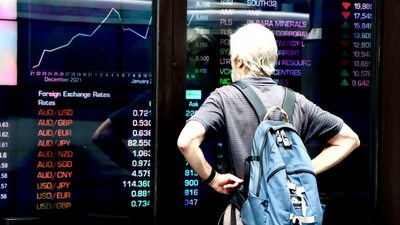Stocks, collectively, trading on the Australian Securities Exchange, have entered a technical "correction".
A correction is a drop in stock prices of 10 per cent or more from their peak. By the close on Thursday, Australia's benchmark ASX 200 index was down 10.3 per cent from its record high set in mid-August.

The trillion-dollar question is, when will the heavy selling stop?
Despite tens of billions of dollars having already been wiped off the local market, and trillions more globally, professional investor and author Danielle Ecuyer says there are likely further losses in store for those who remain invested in shares.
"Stock markets are increasingly gripped by a fear that four decades of successively lower interest rates is about to end, combined with geo-political risk," she explains.
"Then fear and selling begets more fear and selling.
"This will present another significant buying opportunity, but all technicals (charts of share price movement) suggest the bottom isn't in yet."
Inflation threat
Low inflation can be a dream for investors.
It affords central banks the ability to keep their monetary policies loose (interest rates low).